The Original. Since 1944.
We've been trading out of 18 Brewer Street in London's Soho for 80 years, taking our name from our founder Lina, a formidable lady from Acqui Terme near Genoa, whose love story with her lifelong partner, Emilio Crippa, laid the foundations for our beloved Italian delicatessen. Since then, our humble delicatessen has been cared for by many generations of Italian families, continuing her legacy to this day.
Lina set up the delicatessen in 1944 to offer the finest Italian produce to hungry Londoners and homesick Italians. Today, we continue to do exactly the same. We offer fresh, homemade pasta, sandwiches and salads, along with traditional salumi and formaggi as well as other Italian culinary essentials, including coffee, biscotti, olive oil and much more. The seasonal menus in our restaurants are inspired by the products in our delicatessens; with fresh pasta taking centre stage and authentic antipasti, secondi and dolci completing the experience.
With five delicatessens, ten restaurants, four bars and an online shop, we continue to bring the very best of regional Italy to your table, whether that's in your home or in one of our locations.
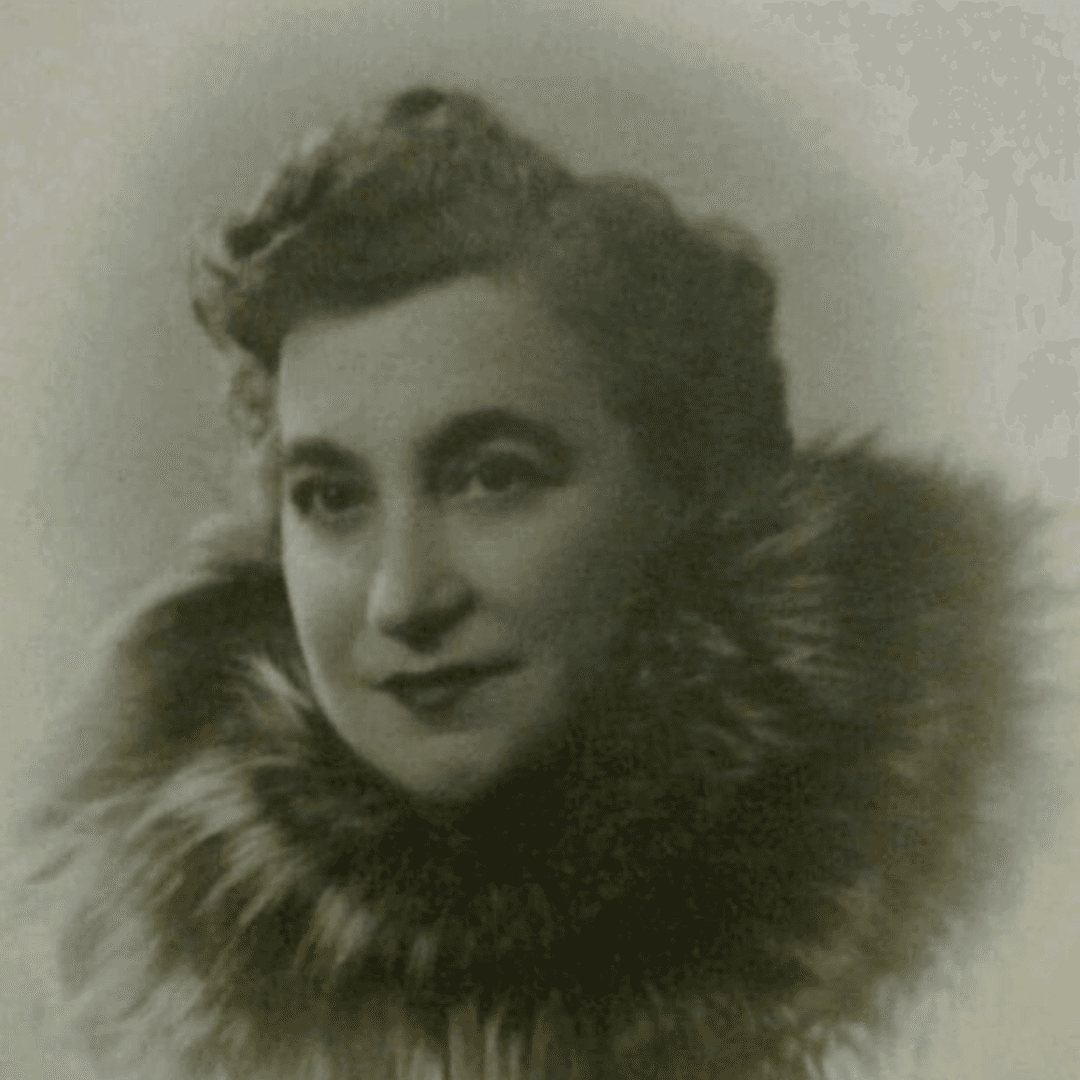
Lina Parisio
Lina Parisio, or Carolina Orsola Maria Parisio in full, was born on the 5th August 1898 in Acqui Terme, a village in Piedmont, close to Alessandria in the north, and Genoa in the south.
The eldest sibling to her brothers Carlo and Giovanni, Lina came from humble beginnings; her father Pietro a porter, and her mother Claudina, a stay-at-home mother. Her mother passed away when Lina and her brothers were still children, and only four years later, her father died a soldier during World War I, making the three siblings young orphans.
In the prospect of a better future and to financially support her brothers, Lina moved to London in her early 1920s to work at the Italian Hospital in Queen’s Square as a live-in cleaner.
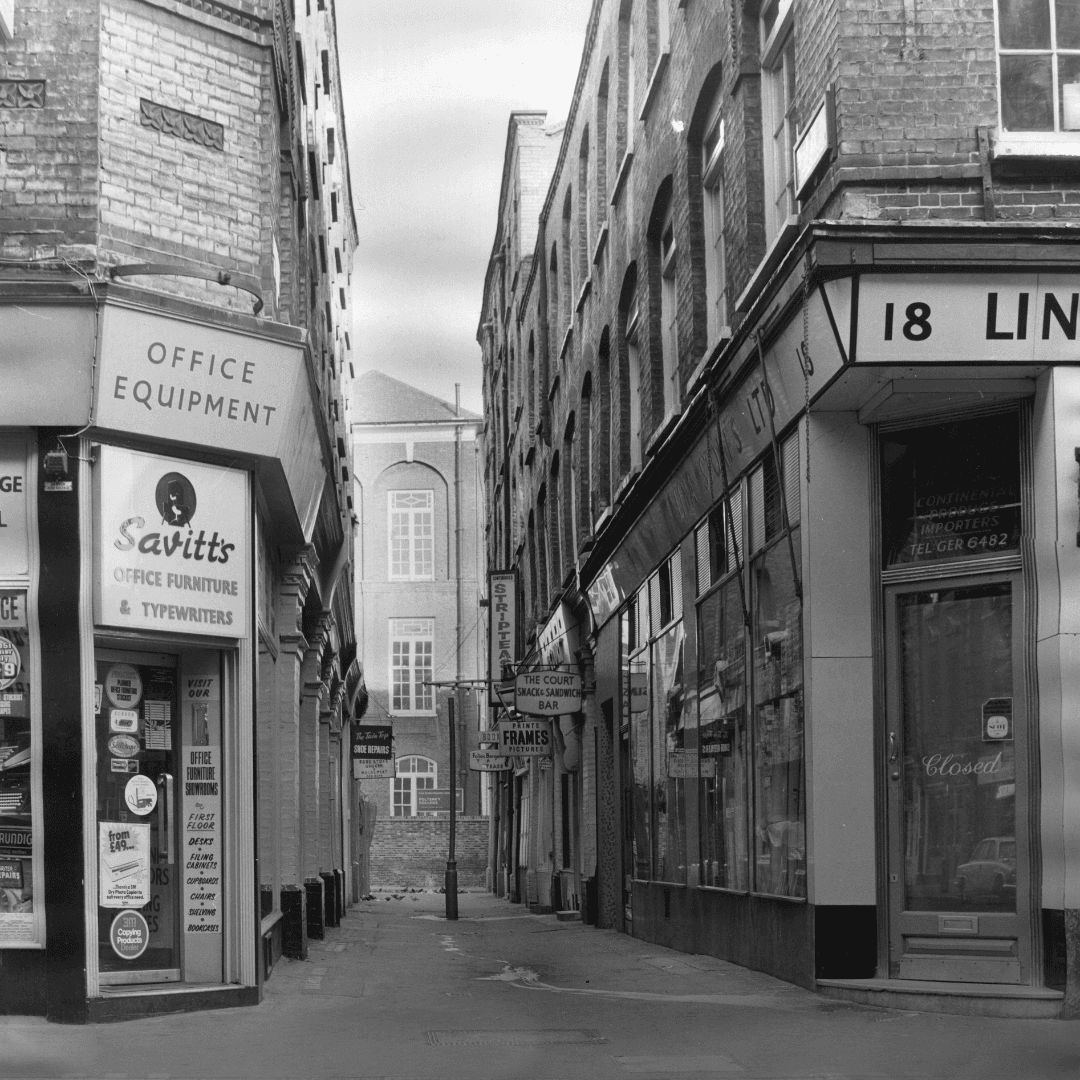
Enrico Emilio Crippa
Shortly after her move to London, Lina met Enrico Emilio Crippa, an engineering fitter from Bellano on the shore of Lake Como, while working at the hospital.
This chance encounter sparked the start of their relationship, with Lina and Emilio moving quickly in together and despite never officially marrying, becoming lifelong partners. By 1939, Emilio was a provision store proprietor of a wholesale business and kiosk called Continental Produce Importers at 3 Tisbury Court, the foundation of the Lina Stores we know today.
From the beginning, their business partners, Alberto and Rita Seradi, worked closely with them. In the search for an assistant, Lina had been introduced to Rita, a hard-working and very capable waitress. The four got on very well from the get-go and so it was a matter of time before Lina and Rita ran the day-to-day of the business while Alberto and Emilio were responsible for the work required behind the scenes.
Realising they needed larger premises, Lina and Rita came across 18 Brewer Street, which sat empty at the time. They proposed expanding the business there to Emilio and Alberto. And so, the idea for Lina Stores was born.
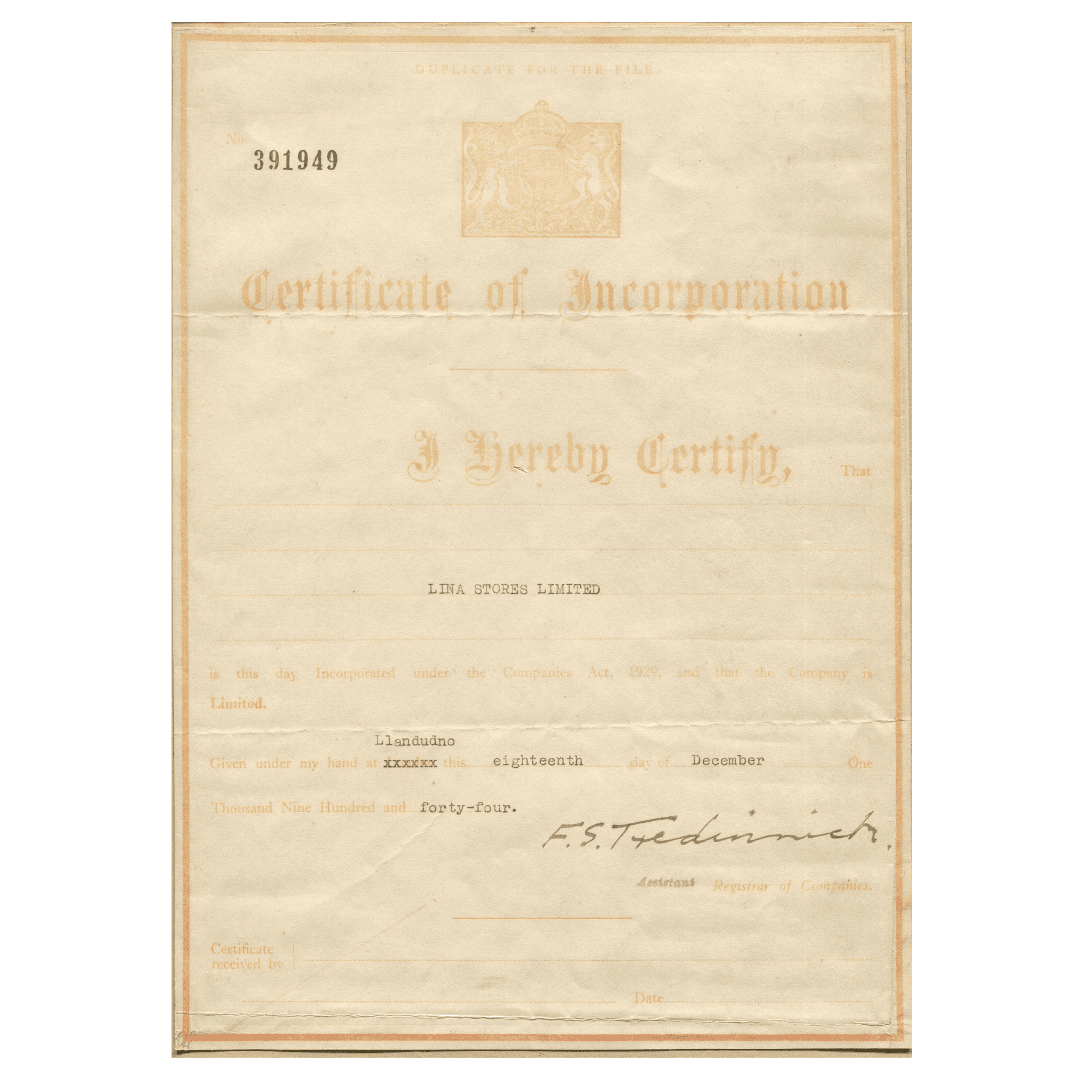
Established 1944
Lina Stores opened at 18 Brewer Street in 1944. On the corner of Brewer Street and Green’s Court, the delicatessen featured its signature pistachio-green exterior from opening. Officially registered in Emilio’s name, he named the delicatessen after Lina, the love of his life. In fact, Lina Stores is a typo made when registering the business. The delicatessen was meant to be called “Lina’s Store”, but the name was misspelt, and it has stuck ever since!
Initially focusing on general Italian produce, the delicatessen quickly specialised in importing artisanal, high-quality products from regional Italy that were impossible to find anywhere else in London at the time. Lina Stores became one of the first businesses to import a large variety of Italian cured meats and cheeses, including the now beloved Parmigiano Reggiano and Prosciutto di Parma. Italian store cupboards and cooking essentials, like olive oil, balsamic vinegar and more soon dotted the shelves. It was not until Italian delicatessens like Lina Stores set up shop in London that olive oil started to be used as a cooking oil in kitchens. In fact, olive oil used to be exclusively available in pharmacies to treat earache!
Often seen making fresh pasta by hand in the shop window, Lina was affectionately nicknamed “the smiling lady” by her customers and counted Agnolotti and Tagliatelle amongst her favourite pasta shapes to make.
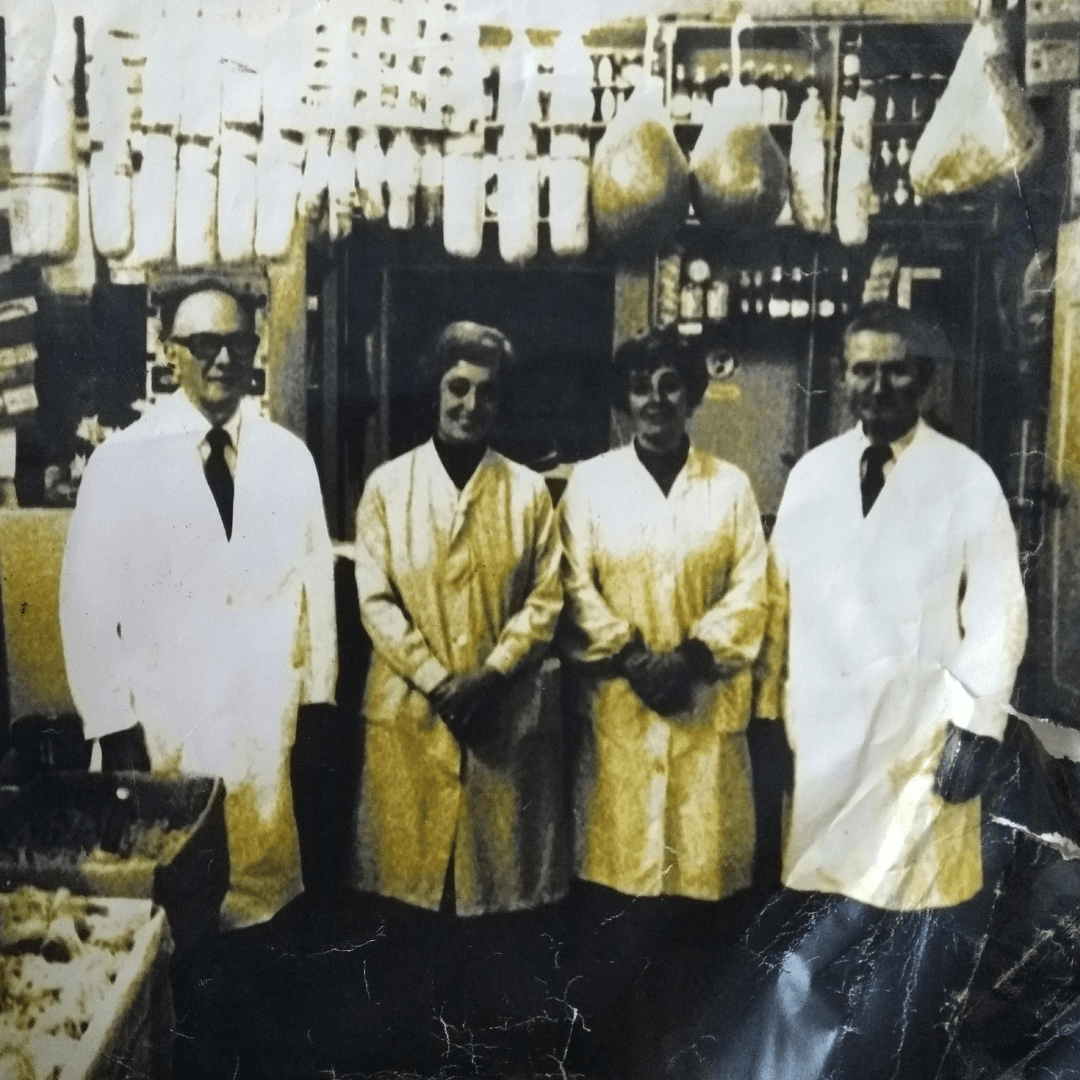
Alberto and Rita Seradi
Alberto Seradi was born in King's Cross, London, to poor Italian parents, who had moved from the small village of Morfasso in Emilia-Romagna in search of a better life. When WWI hit, his parents decided to send him back to Morfasso to be brought up by family friends. At the age of 15, he returned to London, and a few years after his arrival, married Rita and they started building a life together. Rita also grew up in King's Cross and then moved to Angel after her family's house was destroyed in a bombing in WWII.
Emilio died on 6 April 1967 as Company Director of Lina Stores. As a last testament to his love for Lina, Emilio left the business and all his possessions to her. His good friend and business partner Alberto Seradi was witness to the will.
After Emilio’s death, Lina, now in her 60s, decided to retire and left the business in the trusted hands of the Seradi family. She moved back to Italy where she split her time between Acqui Terme with her family and at her apartment in Lerici, Liguria. She died peacefully in Acqui Terme on 9 February 1986 at the age of 88 with her family by her side.
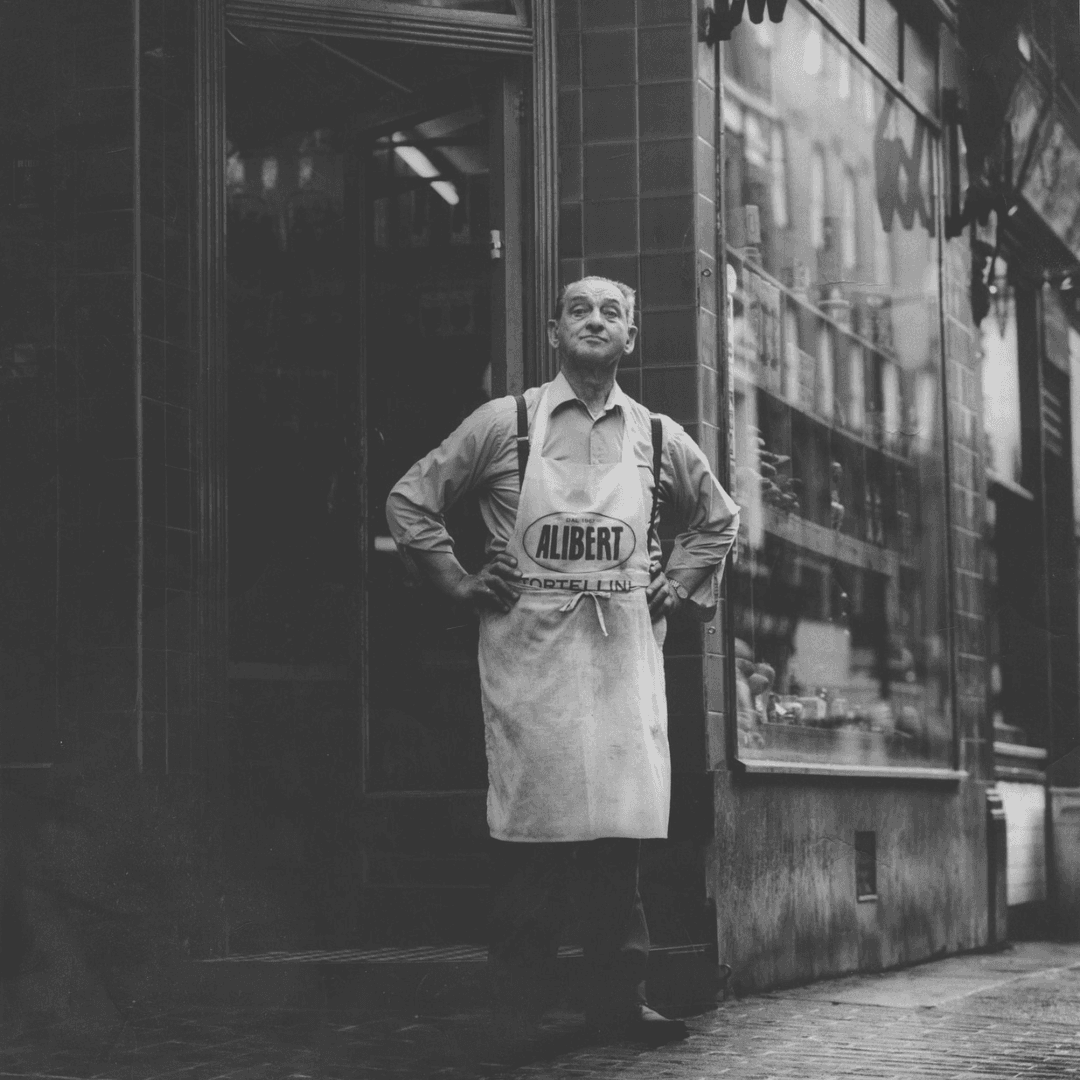
The Filippi Family
In the spring of 1978, Giovanni and Rosa Filippi took over the delicatessen from the Seradi family and run it with their daughter Gabriella and her husband Antonio Saccomani, affectionately known as Tony.
Gabriella was responsible for liaising with our suppliers and producers, many of them we still use today, while Rosa loved serving customers, and Giovanni and Tony were responsible for the food. The Filippi family continued to use the original kitchen and pasta machinery that Lina and the Seradi family used for all these years.
When Giovanni and Rosa retired in the early 90s, Gabriella and Tony took over the delicatessen, followed in turn by their son-in-law Massimo with support from their daughter Claudia.
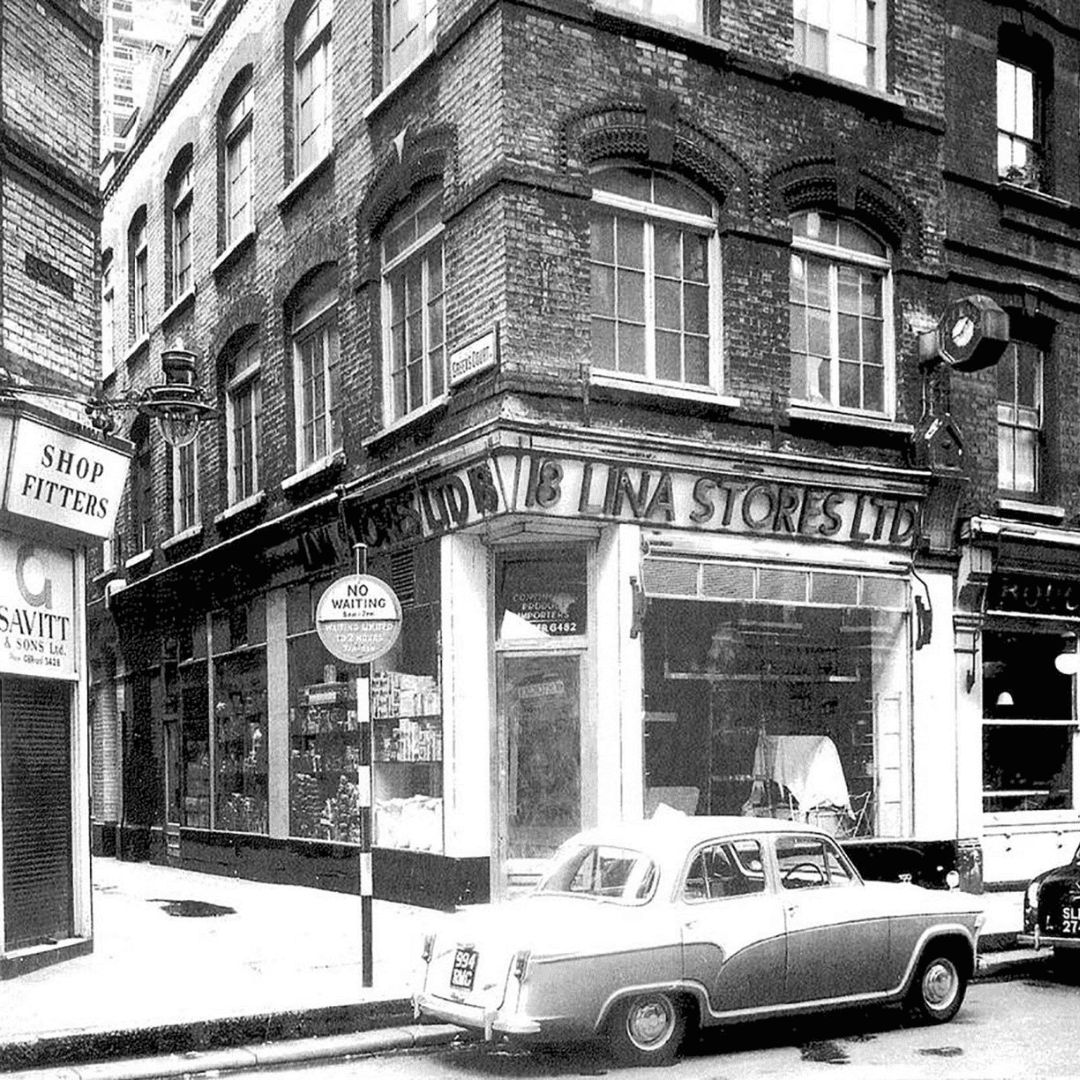
18 Brewer Street
The building at 18 Brewer Street had lived many lives before it was turned into the delicatessen we know today. From the late 1700s through to the early 20th century, it had been a saddlery shop, a dentistry office, a hairdresser's, an artist's studio, a curiosity dealer's, a watch shop, a dairy shop, a tailor, and a shoe shop before becoming the delicatessen we know today.
In the mid-20th century, the rooms above the delicatessen were used for auditions and rehearsals for nearby theatres in the West End. Later, they were rented by John Calder, who ran his publishing business from there. Many faces visited John Calder over the years, including renowned Irish novelist Samuel Beckett, who often visited from Paris and stayed overnight, playing Calder’s Bechstein grand piano into the early hours.
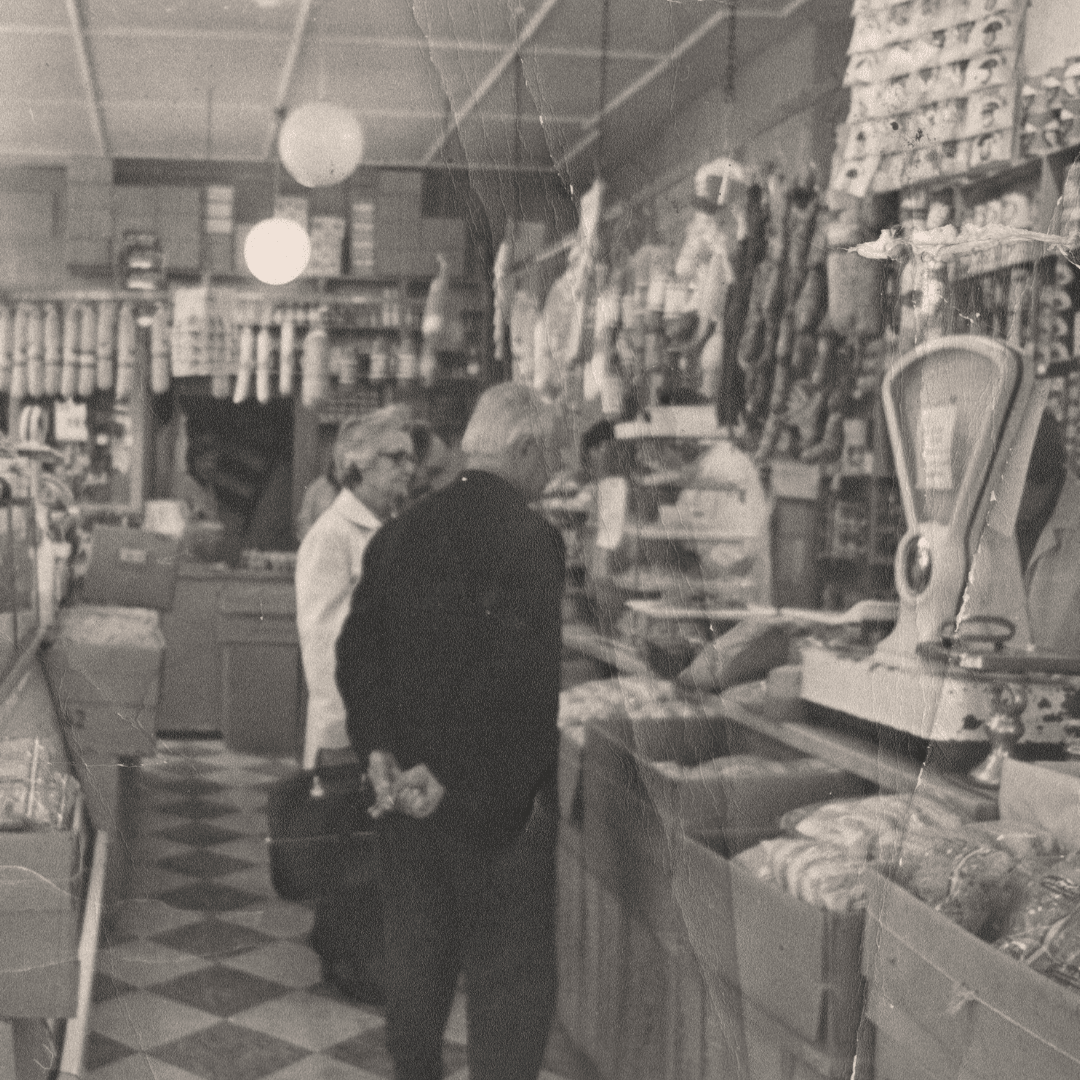
Soho's Italian community
The Italian presence in London’s Soho dates to the late 19th century when Italian immigrants began to settle in London. Most of the Italian community centred around Clerkenwell’s “Little Italy” came from the South whereas many Italians from the North established roots in Soho. Drawn by economic opportunities and fleeing political unrest, they brought with them their rich culinary heritage, establishing cafés, restaurants, and delicatessens that quickly became integral to Soho's cultural fabric. Over the decades, Soho evolved into a vibrant Italian enclave, renowned for its authentic trattorias and vibrant social scene. Despite facing challenges, including anti-immigrant sentiment and economic fluctuations, the Italian community persevered, contributing significantly to Soho's cosmopolitan charm and leaving an indelible mark on its history to this day.
Not only popular with Italians missing home and locals wanting a taste of Italy, our Brewer Street delicatessen has also been welcoming many famous faces throughout the years. From Roger Moore and Ava Gardner to Paul McCartney and Tony Curtis, and from Laurence Olivier to Alec Guinness, actors and musicians going to and from meetings in Soho’s Theatreland, film production companies and nearby music studios, often frequented the delicatessen. Luciano Pavarotti even described Lina Stores as “a little piece of Italy”!
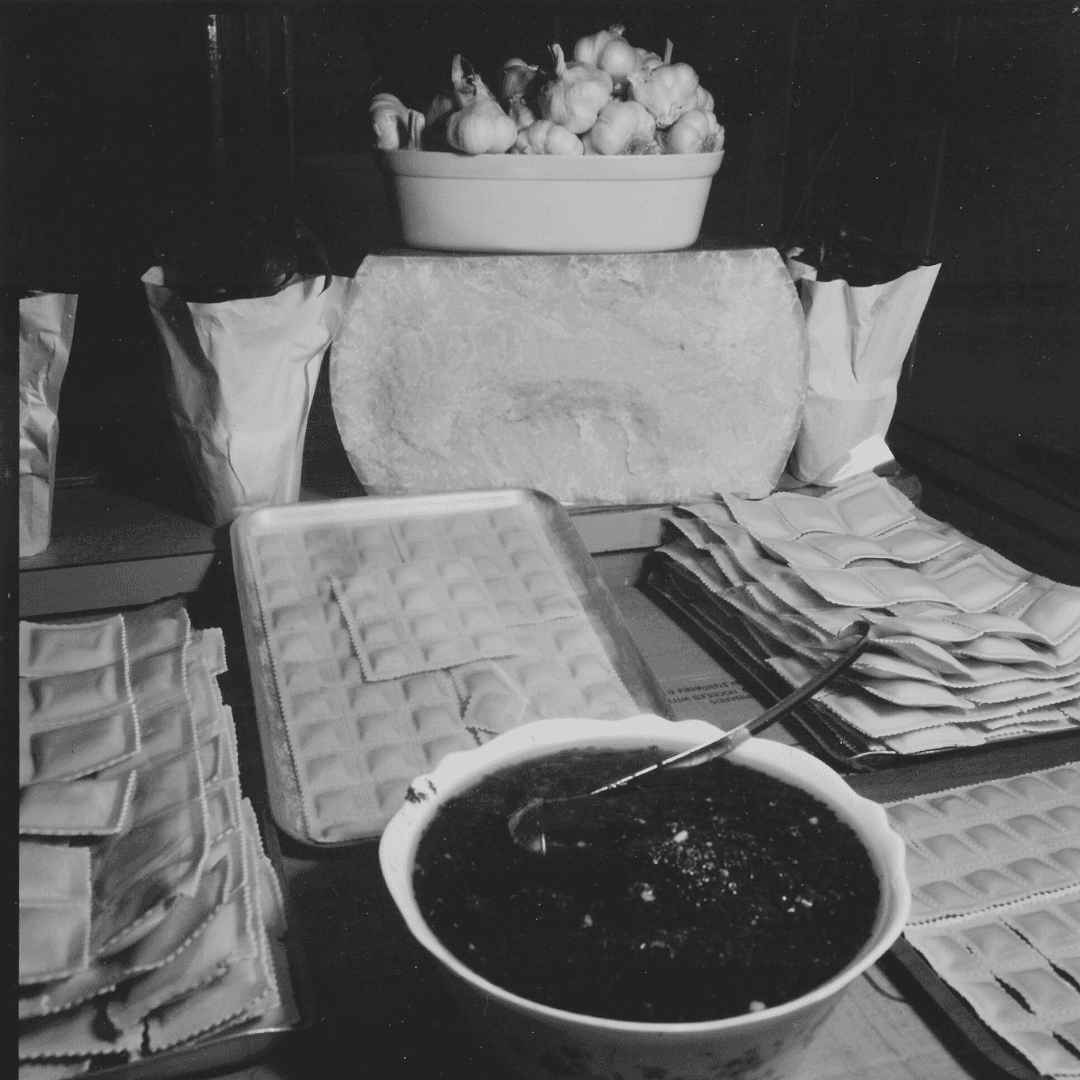
Fresh, Handmade Pasta
Fresh, homemade pasta has always been centre-stage at the delicatessen. Lina and the many generations after her had taken incredible pride in making fresh pasta by hand. One of only a few places to get fresh pasta in London in the 1940s, the delicatessen quickly became known for its many shapes and sizes on offer, and even served many famous restaurants and hotels throughout the city, including Cafe Royal, The Ritz, The Savour and Le Coq d'Or.
To this day, we make all our fresh pasta every morning for our delicatessens and restaurants. Some recipes, including our famous Spinach & Ricotta Ravioli and Veal Ravioli, date back to when Lina and Rita ran the shop.
From the opening of the delicatessen until the end of the war in 1945, Lina and Emilio were without a car or delivery vehicle, so they cleverly strapped trays of pasta to the back of their large dog to deliver the pasta to nearby restaurants around Soho, so no one had to go hungry!
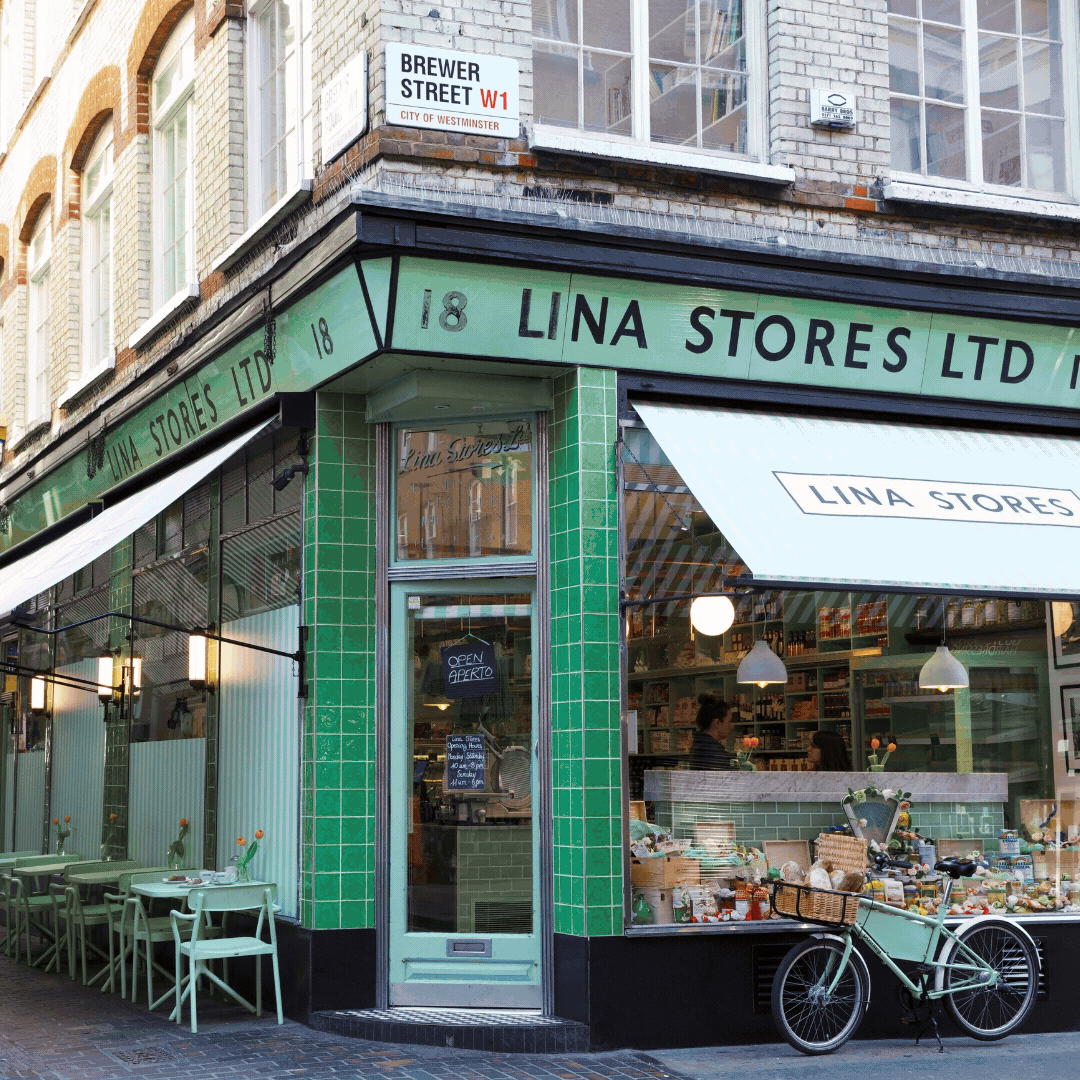
Lina Stores Today, 80 Years Later
80 years have passed since Lina first opened the doors to the delicatessen. London’s Soho has changed and adapted, but Lina Stores on Brewer Street has remained the same, except for the odd lick of paint or two. Even though we have grown into three delicatessens, eight restaurants and an online shop delivering across the nation, our aim remains to continue the legacy set out by Lina, the Seradi family and the Filippi family. Without the incredible love, passion and devotion of generations of Italian families and their female leaders, who made Lina Stores what it is today, the delicatessen would not have gained such a prominent place in the London food landscape. We are forever indebted to continue their legacy in the highest regard for the next 80 years and beyond.